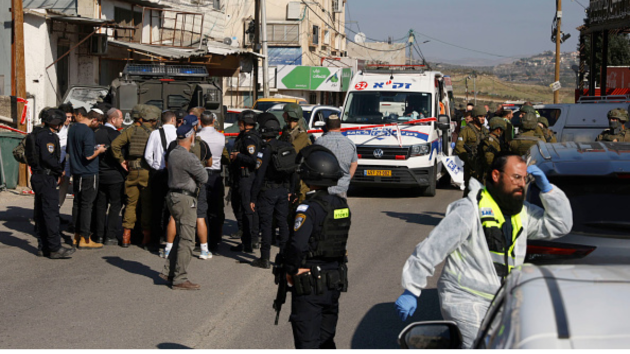In South Sudan, a new front line of climate change after historic flooding
Written by ABC Audio ALL RIGHTS RESERVED on April 19, 2023
(BENTIU, South Sudan) — The water came in the night, rushing into her home.
And as it covered everything she owned in her hometown of Niahldiu, Nyathak took her children through the waters to the shore, waiting to be rescued.
Flooding during the rainy season is not uncommon here in South Sudan, but as the weeks and months passed without the waters receding, Nyathak — like so many here — made the decision to leave Niahldiu with her family in search of dry land.
She said it took her six days to reach dry land — almost 30 miles away in Bentiu, the seat of Unity State, where, for two years now, tens of thousands of people have come seeking dry shelter, medicine and food, as the flood water claims more and more communities and cuts off many others from supplies.
ABC World News Tonight anchor David Muir and his team traveled to South Sudan to report on yet another front line of the climate crisis, with more than one million people now facing severe food insecurity due to the worst floods here since the 1960s, according to the United Nations.
They joined humanitarian workers from the World Food Programme as they race against time to bring necessary supplies — and food — to support the hundreds of thousands of people displaced by both conflict and climate in the town of Bentiu. So many here have been cut off by the water, forced to rely on canoes or wade through the high waters in search of food, shelter and medicine.
Khaula Waqar, a logistics officer with the WFP who has been in South Sudan for five years, said the floods caught everyone by surprise.
“We were totally taken aback … We were completely surrounded by water, and Bentiu had basically become an island. It was really heartbreaking to see all the villages underwater and the people and their livestock getting displaced,” Waqar told Muir in Tong, one of the villages now isolated due to the flooding. “These people, they’re not water-based communities, so they had no canoes or boats to transport their items. But they just had plastic sheets and were carrying all their possessions in the flood water and moving, searching for higher ground.”
The South Sudanese are no strangers to conflict or displacement. It’s the youngest nation in the world — this region broke away from Sudan in 2011, with the promise of peace after protracted conflict. The people here sacrificed for decades to achieve independence, and thousands of them were displaced in the fighting.
The country, home to one of the world’s largest swamp lands, and its people would move with the seasons. During the rainy season from April to October, the swamp would swell, leading to a dry season where communities here would take their livestock to pasture and grow crops.
ABC News was there as humanitarian convoys traveled the only road in and out of the region — the Bentiu Panakuach Road — that comes from Sudan, witnessing the aid’s uncertain future, as the road is threatened by rising waters in the coming rainy season and now conflict north of the border in Sudan.
“WFP is in a race against time to preposition the food before the rainy season starts, because if we can’t preposition the food, then people will be on the brink of starvation,” Waqar told Muir. “We also have some IPC 5 counties here, which means there’s almost famine there.”
The IPC is the Integrated Food Security Phase Classification, and phase 5 is considered catastrophe and famine, according to the system.
The aid is crucial. One in five children here are severely malnourished, with mothers forced to feed them water lilies, which grow in the flood waters, to keep their bellies full.
“It is a coping mechanism because they don’t have enough food,” Aachal Chand, WFP’s head of nutrition in South Sudan, told Muir outside a nutrition site in Tong. Mothers were arriving there by canoe, desperate for help.
Chand warned that, with conflict elsewhere in the world, attention and funding have moved away from South Sudan. Currently, the organization is only able to provide food rations for half the month.
“We do not have enough funds to provide the needs for the whole month, so we only provide a 50% ration, so the other 50% has to be sourced by the community,” Chand told Muir.
Water lilies and fish caught in the flood waters round up the rest of the month, presenting yet another issue.
“Water and sanitation is a big issue here, as well, so diarrheal diseases are very common,” Chand said. “If you don’t have safe drinking water or safe cooking water, then whatever you cook also can harm your child.”
Muir and his team met some of the children affected at the Bentiu State Hospital, where the most severe cases have been admitted. On a recent day, there were 20 children admitted to the hospital for malnutrition, including baby Goer — at 42 days old, he weighs under 4 pounds.
Officials here say the baby’s mother, Nyadier, can’t find enough food to feed herself and thus is not producing enough breast milk for Goer. The flood has claimed the lands; food is scarce.
“The reason of this child being admitted is because the mother does not have milk, breast milk,” Kuajien Gathook, a clinical officer with World Relief, working with WFP at the hospital, told Muir. “The mother cannot find enough food so that she can produce.”
According to the World Food Program:
- $7 provides a month of school meals for a child in need, which is sometimes their only reliable meal.
- $25 provides 50 mothers with nutritious meals, supporting multiple generations.
- $50 provides a child with a year of school meals, keeping kids coming back.
- $75 feeds a family of five for one month, providing staples such as rice, vegetable oil, sugar, salt, flour, beans and lentils.
- $1,000 can feed a family of five for one year, creating a lasting impact.
Click here to help children and families displaced by the floods in South Sudan.
Copyright © 2023, ABC Audio. All rights reserved.






